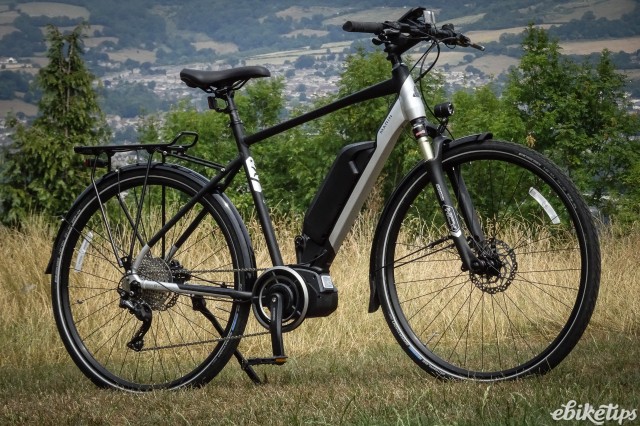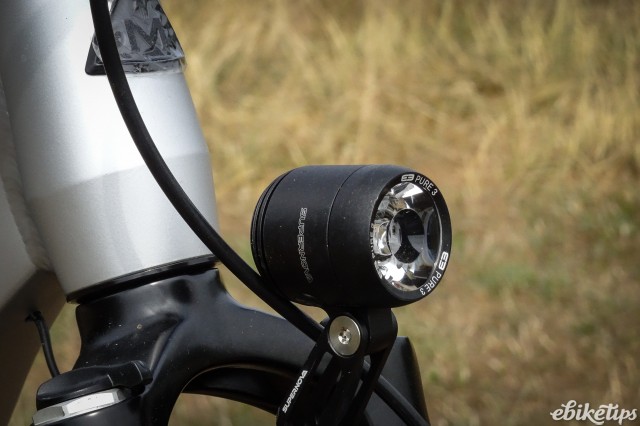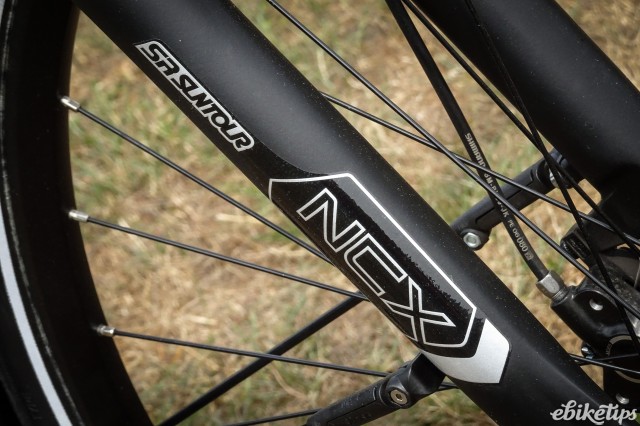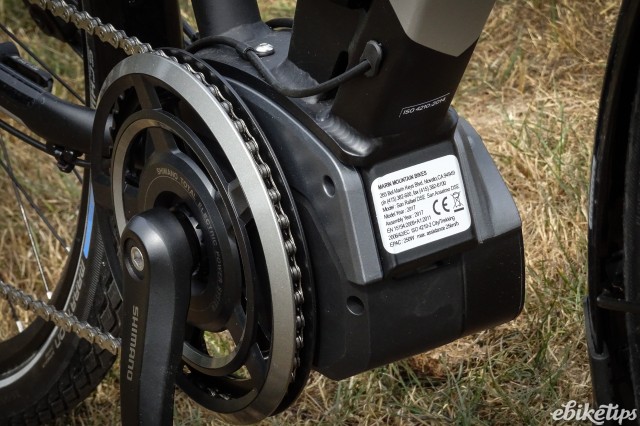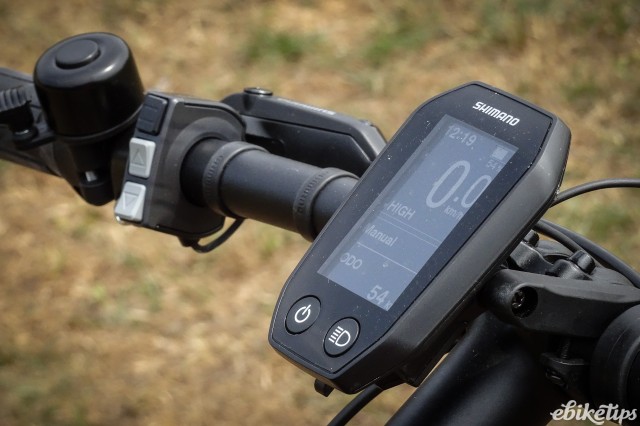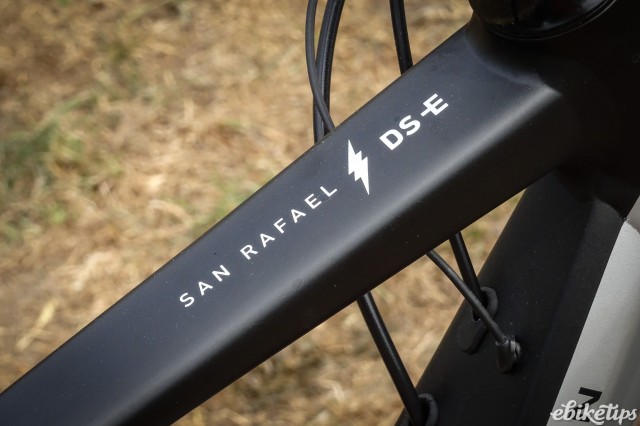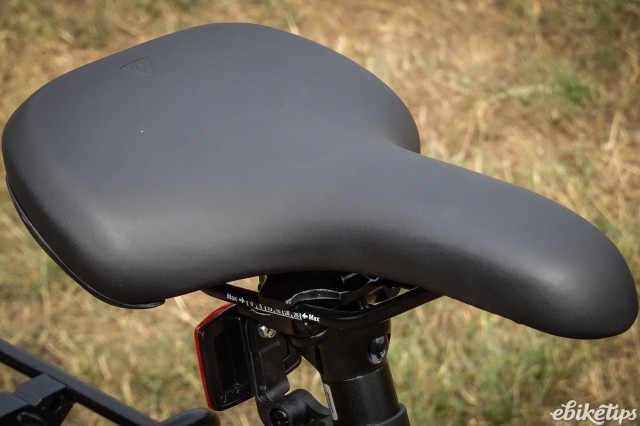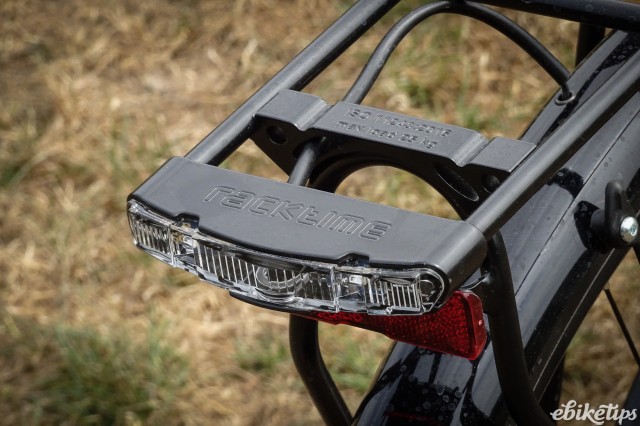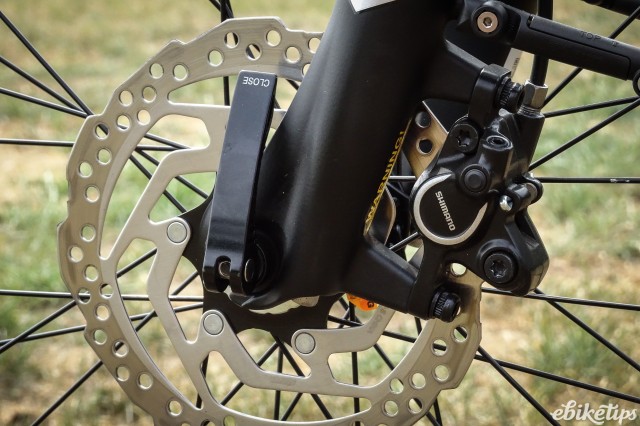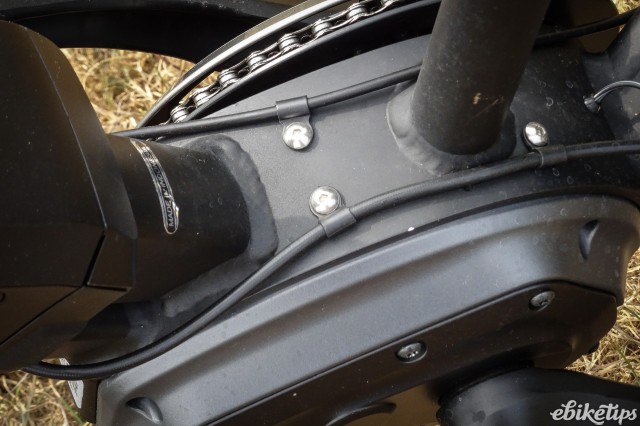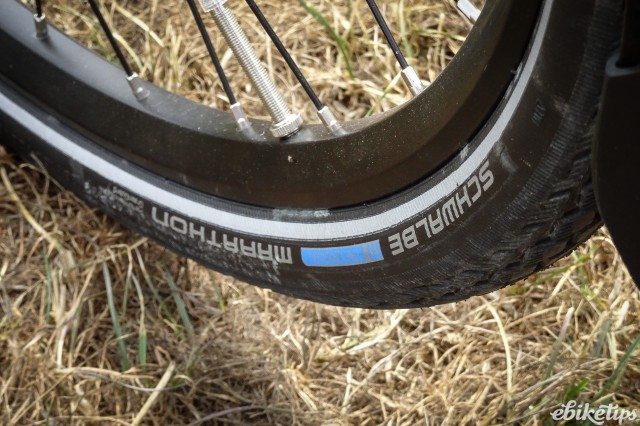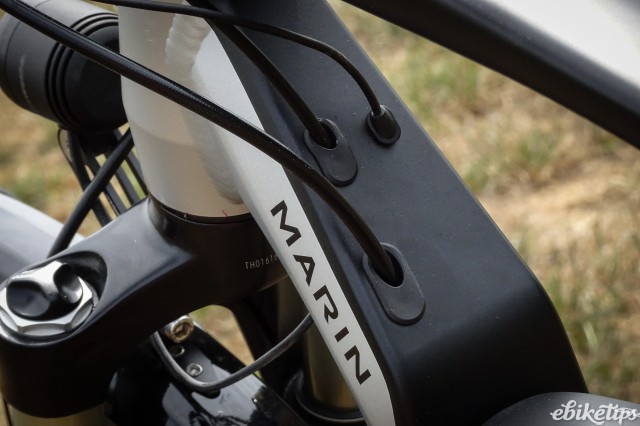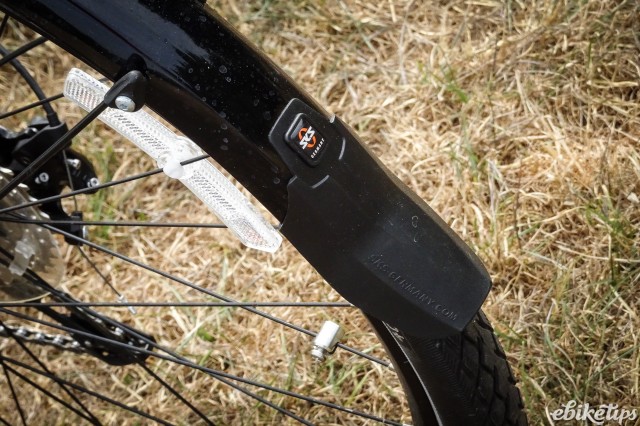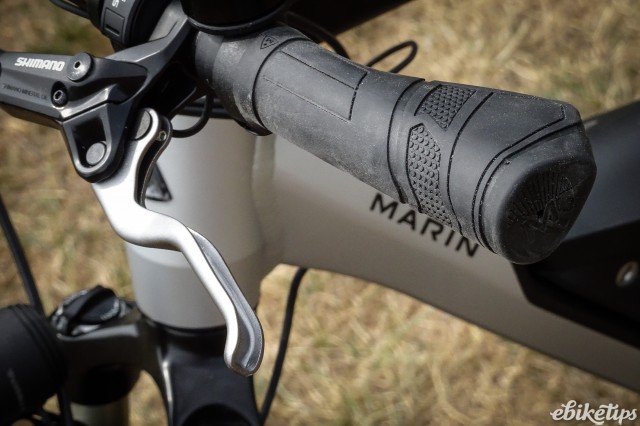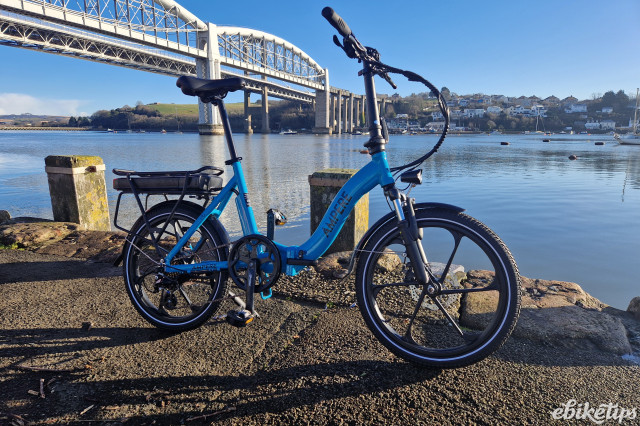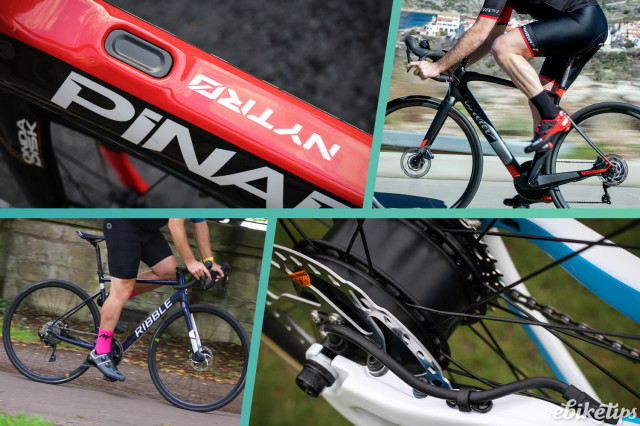Review: Marin San Rafael DS-E Deore
Overview
- Good quality build
- Fork is excellent
- Plenty of range
- STEPS city motor not state of the art now
- A bit expensive compared to rivals
Once you’re spending over a couple of grand on your e-bike you can expect a good quality experience, and that’s certainly the case here. The Marin San Rafael DS-E delivers a good ride, with a well-established motor system and quality componentry all the way through. Shimano’s E6000 STEPS motor is soon to be superseded but it’s still a powerful performer and the bike Marin has built around it here should be good for years of city or leisure riding
“The San Rafael and San Anselmo DS-E bikes are for riders looking to commute, explore mixed surfaces and terrain, travel the local rail system, and explore the world around them with ease”, says Marin. “Dual Sport Electric bikes are a bridge between pavement and dirt, for the recreational and commute rider.”
The two bikes share the same build, with the only difference being the mixte frame on the San Anselmo with a lower stepover. Both frames are butted and hydroformed 6061 aluminium alloy, and the build quality and finish of our test bike was very good. It’s a neat looking bike, too, with all cables routed internally. The San Rafael is available in five sizes, and the San Anselmo three.
Motor: plenty of power but maybe starting to show its age
Shimano’s E6000 STEPS motor system is well-established now. In fact it’s so well-established that it’s been superseded, by the new E6100 city motor that uses the same format as Shimano’s E7000 and E8000 mountain bike motor systems. The new motor will be lighter and a bit more powerful, but it’s not available on any bikes just yet, so for now E6000 is what you’ll find on Shimano-equipped city bikes.
The motor system certainly isn’t bad, but it is beginning to show its age when compared to newer systems. Most notably it’s being shown up a bit by the new Bosch Active Line Plus system which is lighter, functionally silent, and just as powerful. The E6000 motor is a bit bulky and noisy by comparison. That’s no real surprise, I guess: it’s over five years old now and the technology in e-bikes is moving on apace. I’m sure the new Shimano motor will be a big step forward.
It’s not state of the art now, but there’s no particular need to worry about whether the motor will get you where you’re going. There’s lots of power on tap, especially when you’re in the highest assistance mode (of three), and that in combination with the sensible spread of gears from the 10-speed Shimano Deore drivetrain. The 11-42 tooth cassette means that everything from steep climbs to flat cruising is straightforward. The three modes are well-spaced; most of the time you probably won’t need to go into high which comes into its own when the road veers up. The San Rafael is happy on quite steep slopes thanks to the reasonably low gearing; the gradient has to be well into the teens before you’ll find it a struggle.
Range is good: I can easily get four commutes out of the 400Wh battery, which is pretty much par for the course for a good quality mid-motor bike. That’s less than 40km but it’s a very hilly 40km; if you live somewhere flatter you’ll easily get 60km out of the Marin, or more if you’re a bit more conservative with the assistance modes.
Ride: enjoyable and well-suited to a range of riding
The ride of the San Rafael is very good, with bike feeling well-balanced for a variety of riding. It’s not so upright and short that it feels ungainly for longer rides, and it’s not too long and low to be comfortable in city traffic. The bottom bracket is fairly low, which isn’t usually a problem about town but you might find you drag a pedal from time to time if you pedal it into a corner. The Schwalbe Marathon tyres offer plenty of grip, and I’ve always found the Green Guard puncture protection to be very effective. It makes the tyres feel a bit less agile, but on a bike like this that’s a secondary concern, really.
The bike feels like it’s more designed for tarmac than unsurfaced paths, but it’s happy enough on graded trails. You wouldn’t throw it down anything technical, but it’s composed and easy to ride on fire roads and towpaths. Normally I’d bemoan the addition of a suspension fork on a bike like this; they tend to be flexy and not very well damped. However, the Suntour NCXE fork Marin has used here is, for the most part, excellent. 63mm isn’t masses of travel, but it’s a well-made, air-sprung fork that can be adjusted for rider weight, and the travel is supple and well-damped. Normally I lock the fork out on tarmac, but there really wasn’t any need here.
The gearing we’ve covered: there’s enough range for most uses. The brakes are Shimano’s hydraulic discs, and they’re excellent, offering masses of stopping power in all conditions with the grip from the tyres helping too. The handlebar is a flat riser, as opposed to a swept design; that puts your weight a bit further forward and makes the bike feel a bit more purposeful. The Marin ergonomic grips are comfy enough for longer rides; the Marin-branded saddle is okay too. The integrated lighting is especially good, with the Supernova front light punching out enough light for dark lanes.
Overall: a high quality bike that rides well
The San Rafael DS-E is a bike that I’ve enjoyed riding. There’s nothing in the build that really lets the bike down; okay the motor isn’t the most up-to-date now, but it’s still a perfectly capable system and the range is very good. The drivetrain is efficient and easy to use, the suspension fork – unusually – is a proper benefit, and the brakes are excellent. Finishing kit is all high quality, as befits a £2,400 machine.
In terms of value, it’s maybe a touch over-priced. The Raleigh Motus Grand Tour we tested recently has Bosch’s brand new Active Line Plus motor, which is a better unit than the STEPS one used here, and a similar level of build (albeit with a fork that’s not as good) and it’s £250 cheaper. The Pinnacle Lithium Ion gets a rigid fork and there’s no integrated lighting, but it’s a round £2,000. The finishing quality of the Marin – the fork, the lighting, the finishing kit – is a level above those two bikes, so it deserves a higher price tag but maybe not quite as high as the one it has. You won’t be disappointed if you do decide to buy one, though: it’s a very good all-rounder with a great build and excellent road manners.
